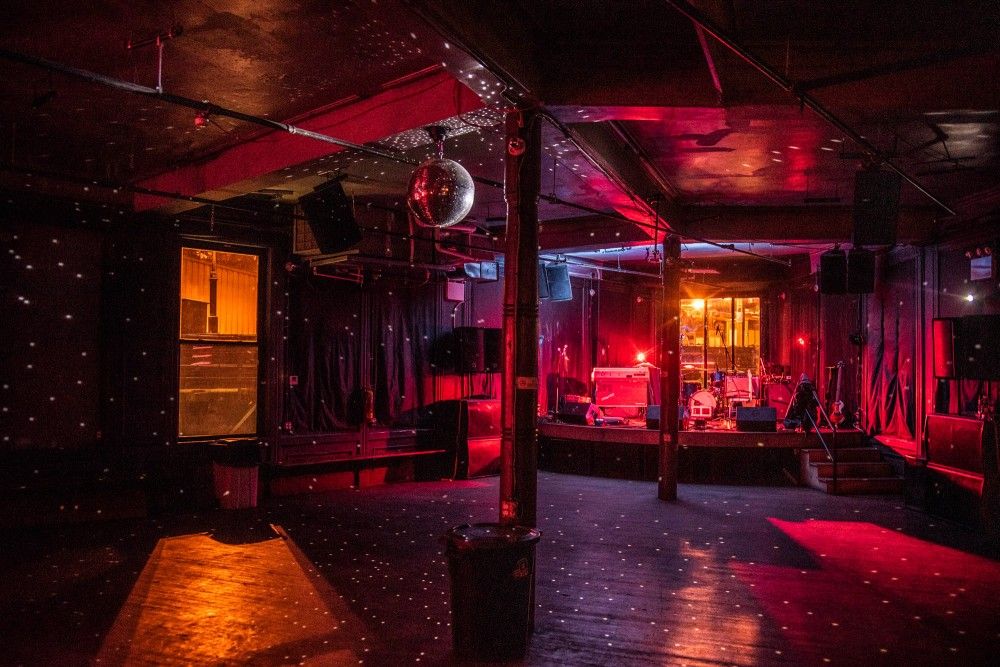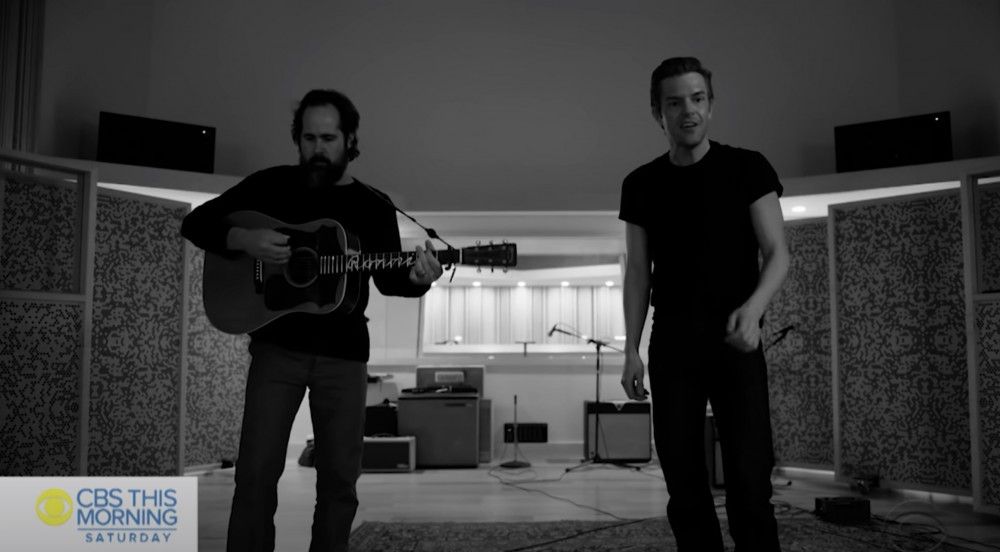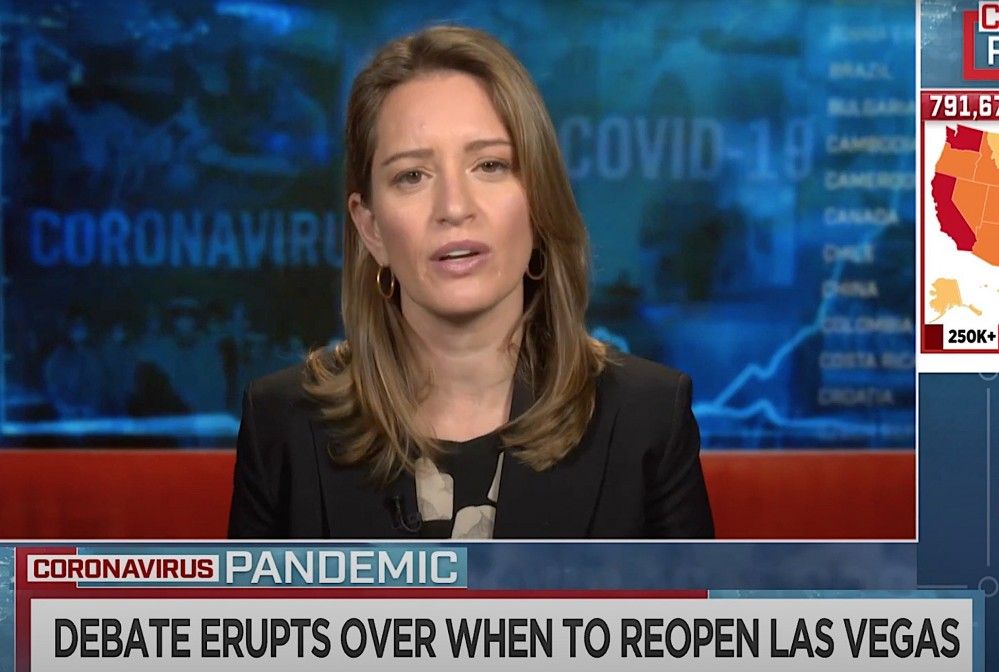
How Coronavirus Is Destroying the Livelihood of Music's Behind-the-Scenes Workforce
Paul Klimson, a veteran audio engineer who’s worked with artists like Justin Timberlake, the Roots, and Eric Clapton, was putting together a docket of upcoming shows across multiple venues last week. Then, suddenly, they were all axed in one go. A “text came through that wiped out $11,000 in gigs between now and at least April 8th,” Klimson tells Rolling Stone.
Klimson is one of thousands of behind-the-scenes figures in the live music business who’ve found themselves in limbo as the rising tide of cases cancels and postpones tours, shows, and festivals at a frenetic pace. For the significant number of people employed as independent contractors — tour managers, directors, and accountants, instrument technicians, lighting technicians, soundboard operators, and others — their jobs often simply do not exist without concerts.
Take tour manager Chris Brunton, for instance, who tells Rolling Stone he lost out on four weeks’ worth of touring shows, appearances, promo trips, and the Junos, Canada’s equivalent of the Grammys.
Or Caitlin Ray, a tour merchandiser, VIP coordinator, and production assistant, who says she receives 100 percent of her income from touring. In a matter of 12 hours, she had two comedy tours — Adam Sandler and Sebastian Maniscalco — postpone, and multiple one-offs cancel.
When Rolling Stone reached Matt Schmitz — tour manager for Irish singer-songwriter Eden, stage manager for Maggie Rogers, and production manager for Santigold — he was sitting in London, having just learned that all seven remaining dates of Eden’s European tour had been canceled after President Trump’s confusing travel-ban announcement. “Even though this ‘travel ban’ doesn’t apply to U.S. citizens, it wasn’t clearly mentioned in his statement, and everyone freaked out,” he says. “Now I head back to L.A. to reorganize. I’m honestly not entirely sure what to do.”
These names just represent the tip of a vast iceberg of impacted livelihoods. Here are a few other reasons why the situation is so devastating.
Worst possible timing
Touring work is seasonal. Things slow down in the winter, and spring typically marks the start of a busy period. By the time festival season starts in March and April, wallets are light and workers are eager to get going. “This is right when things are supposed to be ramping back up after the lean months,” says Bryan Scheckel, a production manager who’s worked with Childish Gambino, Passion Pit, and Vampire Weekend. “People expect the cash flow to start again right about now.”
For travel companies in the — those entities that handle an array of touring logistics, including decisions surrounding hotels and flights — the impact can be more extensive, since this type of work is usually done months in advance of a tour. “Working on large-scale tours often requires additional hires six to nine months ahead of the tour,” says Madison House Travel agent Lisa Pomerantz. “We do not see any of that money until that performance happens. The hotels and airlines pay commission to us. In the event of a cancellation due to an injury, pregnancy, or pandemic, etc. — not only do we not get paid, we have to fight to get our client out of contracts so they don’t have to pay the hotel vendors. It is literally two times the work for no pay.”
The effect on her part of the music business has been dramatic, Pomerantz says. “Our industry went from manic to not a single email or phone call in the course of five days. Our company makes about 80 percent of our revenue from March to September. At the moment, we are looking at a third of that being completely wiped out. Additionally, we have strong concerns about receiving commissions from hotels that have already hosted our bands. Since hotels are running at 10 percent occupancy when they were expecting 95 percent, you can bet paying their teams and overhead is going to come way before paying commissions owed.”
According to Pomerantz, every single one of her peers who works with stadium-level acts has had to lay off between 25 and 50 percent of their teams.
Freelance workers weren’t able to plan — or get health care
Within the touring community, freelancers are arguably hit the hardest. “We don’t really have access to some of the support systems you might want at a time like this,” says Scheckel, the production manager. “We aren’t unionized, like a lot of musicians and local stagehands. There isn’t really a ‘roadie advocacy group’ that I’m aware of. Most of us don’t have great health insurance, and don’t have access to unemployment insurance or anything like that.”
“To my knowledge, there is not an industrywide safety blanket for disasters such as this, to cover lost income,” adds Jonathan Carrizales, Chase Rice’s production manager and front-of-house engineer. “This industry operates with many freelancers, who are contracted in to accomplish many of the high-stakes jobs, being paid directly by the tours.”
In the past, an artist’s management would often pay the crew when a tour was cut short — as opposed to being canceled before the start date — but this happens less and less often. “There is no guarantee of timeframe or pay unless you have a contract with the production, and I can speak for the majority that most do not,” says Candice Rukes, who has toured for 15 years, mainly as a production coordinator, road manager, and wardrobe manager. “When I was on tour with Justin Timberlake on his last Man of the Woods tour, he went on vocal rest for an extended amount of time. We were sent home, but he continued to pay us in full until the tour resumed. We are forever grateful for him and his team — but this is rare.”
“Some touring crew are indeed on salary if their client, the artist, does well enough to keep them paid year-round,” one former tour manager and festival producer, who asked to remain anonymous, notes. “I’d love to know the percentage of folks who are independent contractors versus salaried. To be blunt, the former, which I was for my 12 years on the road, are completely fucked. Their clients would love to pay them to not work, but their clients also currently have no income.”
Even if you work for a specific venue, you might not be on salary. Kieran Blake, the general manager of New York’s Bowery Ballroom, says that venue’s house crew is “not exactly salaried, so all their livelihoods are affected — all the bartenders, the barbacks, box-office personnel. Bartenders are paid a certain salary, but they’re largely paid on tips. It’s not like they’re being laid off, but they’re not going to be earning a salary while this is going on. And beyond that, we’ve got six to eight security guards on a night who are all on an hourly wage] who will not be getting paid without these shows. Coat checkers, box office, and merch tellers are all people who rely on these — some of the younger kids work multiple venues, and all these jobs are gone for the foreseeable future.”
“I’ve already seen massive layoffs from vendors, working to stop themselves from going belly up,” adds Christian Coffey, tour director for Run the Jewels, Childish Gambino, and A$AP Rocky.
As in all industries, independent contractors or “gig workers” don’t receive employment benefits like retirement plans, vacation time, or health insurance. Making matters worse, Trump’s tax plan put a $10,000 cap on what were once unlimited deductions for state and local taxes. “Keep in mind, independent contractors are usually underinsured and can write off less expenses than ever with Trump’s tax plan,” says the former tour manager and festival producer. “It’s not a new thought for the working poor in America, but with no income and no insurance, we’re looking at middle class, formerly full-time workers going into inescapable debt just for breathing in a public place.”
“I hope that all involved in this industry, myself included, can learn from this experience and have better safeguards put in place should this happen again,” adds Caitlin Ray. “Whether it be access to health care, reworking contract clauses to encompass epidemics, or paying more mind to our savings accounts.”
Alternate income sources are scarce
Many people who work in live events only work in live events. Artists might work as a bartender or backline technician to make money when they don’t have shows lined up, but those day jobs are now made difficult or impossible.
Nashville independent artist Meghan Hayes, who has worked as a nurse practitioner in the past, is an exception in that respect, but even she may be out of luck. “Frankly, I can’t just step back into being a nurse practitioner,” she says. “At this stage, that’s probably not going to happen. It’s just the way that Tennessee is. It’s not like I can just decide to go and volunteer during the outbreak.”
“With most of the people who I know that have second jobs, their backup work is in bars, restaurants, and music venues,” Hayes continues. “They’re getting hit doubly hard. These guys can’t work from home.” She mentions the 5 Spot, a Nashville club that just recovered from losing power due to the recent tornado: “They reopened last night, and then, this morning, they shut it down for 30 days as a precaution against the coronavirus.”
Brandon Blackwell is a production manager, front-of-house person, and monitor engineer who has friends and peers who haven’t worked since October and now have to wait for an undetermined time to go back out. “I think what the coronavirus will teach us touring professionals is that we need multiple lines of income for when stuff like this happens,” he says. “We can’t be on the road forever.”
Scheckel has a degree in political science. He used to do campaign work, and with it being an election year, he’s thinking about revisiting that path. The Iowa resident may also go out to the family farm for planting season. “I think I’ll start by working on projects around the house, maybe look at some additional training in my field,” he says, “and eventually pick up work wherever the gig economy will have me.”
Many others are facing this same challenge. “Normally, I’d pick up work at local venues or do consulting or drafting or other tour-adjacent work, but there really isn’t any of that to be had in an industrywide halt,” he continues. “My girlfriend tours, so basically the entirety of our household income relies on shows happening.”
It’s not uncommon to find couples who got together on the road, meaning that right now entire household incomes are pulverized. “My husband and I both tour,” says one small-business owner who provides technical services in the touring industry: Larger gear vendors receive tour contracts and hire these two as contractors to run the gear throughout the tour, under their LLC. “We own our own business, we 1099 every vendor we work with,” says the business owner. “We cannot collect unemployment because we do not qualify. We now have zero income for the next 30 days minimum, most likely more, and we are having to tap into what we have saved up from last year’s tours.”
Moving forward
Tour manager John Lessard works with an artist who had planned to play shows for radio stations in New York and Maryland; both stations canceled. A decrease in opportunities for radio exposure could lead to a decrease in the discovery of that artist’s music, which means less sales and streams. “Radio is a very important component in the country-music format, and this may be the one time an artist can put a face with the name of a station head and build a great working relationship going forward. These rapports are key for the artist to get their music to the station’s listeners.”
Already, new solutions are popping up. In South Korea, an array of free concerts are appearing online to lift spirits during quarantine. According to Quartz, the Seoul Philharmonic Concert recently performed a Beethoven symphony a live broadcast on YouTube, “as part of a government campaign to offer comfort to people during the coronavirus epidemic.” Seoul’s Sejong Center for the Performing Arts is also working on a similar approach.
As for what’s happening in America, Meghan Hayes points Rolling Stone to a Facebook Live event put on by the Wild Ponies. It was free, but they posted a Venmo address for tips. “That’s been a relatively common one,” she says. “People have been doing that here for tornado relief.”
In the case of Nashville, Hayes also suggests petitioning the mayor and local government to give out-of-work people job opportunities in the form of tornado cleanup. “People who went through the tornado need help. People who are going to be affected by all the music changes need help. We should see if there are any local opportunities for people to get hired, even if it’s in different fields than their primary ones. I think a lot of people would rather do something than nothing if they have a mortgage.”
And, as she indicates, there’s always merch: “I know that a lot of people — myself included — have posted things saying, ‘Hey, if you have a favorite artist, they’re affected by this. Either they are or they will be. So, if you could possibly buy their merchandise instead of what you’d spend on going to a concert, that would be great.’ We’ll see how much the general public is willing to say, ‘I’m not spending my money on concerts right now. I’ll spend it on a T-shirt.’”
Web-based fundraising also offers some potential relief. The 5 Spot has a GoFundMe campaign going so that staff can make it through whatever period of time they’ll need.
Cormac Larkin — a musician, writer, broadcaster, and one of the founders of the Improvised Music Company, Ireland’s leading promoter of jazz and world music — has taken to GoFundMe in response to the current crisis: “We are asking members of our audience who can afford it to consider supporting the artists who would have been coming to play in Kilkenny by making the donation they would have made if they had been in the room. We will set up a separate fund each week, which will go directly to the musicians who have their gigs canceled, until further notice.”
Almost everyone Rolling Stone talked to says that one of the scariest factors in this situation is simply the uncertainty surrounding everything. But the music industry is a collaborative one, and its members will do everything they can to get past this. “Will it be two weeks, two months, or two years?,” asks Chris Alexander, tour manager for Texas band Whiskey Myers. “I feel like our fans will get cabin fever after a couple of weeks, and when they do let us play, we will blow the fucking doors off these venues. For now, all I can do is go home to my wife and son and be the best dad and husband I can be. I’ll enjoy that time there and be ready when we can hit the road again and do what we love for a living.”
Additional reporting by Jonathan Blistein



